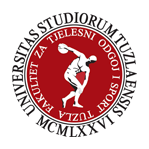A STATISTICAL APPROACH FOR RELIABLE MEASUREMENT WITH FAMILIARIZATION TRIALS
DOI:
https://doi.org/10.51558/1840-4561.2021.18.2.5Keywords:
Familiarization; reliability; accuracy; model-averaging; Akaike Information CriterionAbstract
An accurate and reliable measurement is important in exercise science. The measurement tends to be less reliable when subjects are not professional athletes or are unfamiliar with a given task. These subjects need familiarization trials, but determination of the number of familiarization trials is challenging because it may be individual-specific and task-specific. Some participants may be eliminated because their results deviate from arbitrary ad hoc rules. We treat these challenges as a statistical problem, and we propose model-averaging to measure a subject’s familiarized performance without fixing the number of familiarization trials in advance. The method of model-averaging accounts for the uncertainty associated with the number of familiarization trials that a subject needs. Simulations show that model-averaging is useful when the familiarization phase is long or when the familiarization occurs at a fast rate relative to the amount of noise in the data. An applet is provided on the internet with a very brief User’s Guide included in the appendix to this article.
Downloads
Downloads
Published
How to Cite
Issue
Section
License

This work is licensed under a Creative Commons Attribution-NonCommercial-NoDerivatives 4.0 International License.






